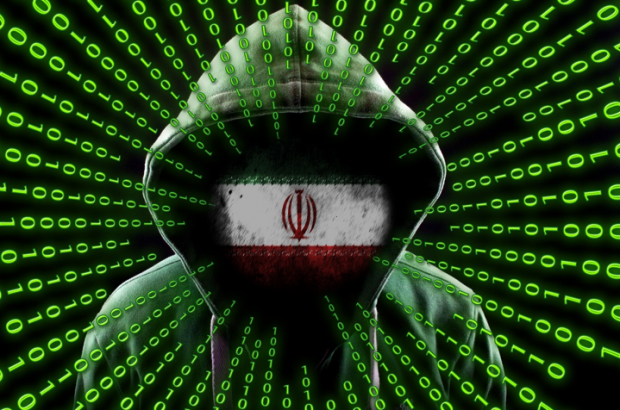
Breaking News
 Survey Reveals "Seismic Shift" As More Parents Reject Vaccine Schedule
Survey Reveals "Seismic Shift" As More Parents Reject Vaccine Schedule
 Ex-OpenAI Scientist WARNS: "You Have No Idea What's Coming"
Ex-OpenAI Scientist WARNS: "You Have No Idea What's Coming"
 Will an Iran Cyber Attack Panic Usher In a New Patriot Act?
Will an Iran Cyber Attack Panic Usher In a New Patriot Act?
 Israel's Depravity Will Always Find New Ways To Shock You
Israel's Depravity Will Always Find New Ways To Shock You
Top Tech News
 "No CGI, No AI, Pure Engineering": Watch Raw Footage Of 'Star Wars'-Style Speeder
"No CGI, No AI, Pure Engineering": Watch Raw Footage Of 'Star Wars'-Style Speeder
 NASA's X-59 'quiet' supersonic jet rolls out for its 1st test drive (video)
NASA's X-59 'quiet' supersonic jet rolls out for its 1st test drive (video)
 Hypersonic SABRE engine reignited in Invictus Mach 5 spaceplane
Hypersonic SABRE engine reignited in Invictus Mach 5 spaceplane
 "World's most power dense" electric motor obliterates the field
"World's most power dense" electric motor obliterates the field
 The Wearables Trap: How the Government Plans to Monitor, Score, and Control You
The Wearables Trap: How the Government Plans to Monitor, Score, and Control You
 The Streetwing: a flying car for true adventure seekers
The Streetwing: a flying car for true adventure seekers
Magic mushrooms may hold the secret to longevity: Psilocybin extends lifespan by 57%...
 Unitree G1 vs Boston Dynamics Atlas vs Optimus Gen 2 Robot– Who Wins?
Unitree G1 vs Boston Dynamics Atlas vs Optimus Gen 2 Robot– Who Wins?
 LFP Battery Fire Safety: What You NEED to Know
LFP Battery Fire Safety: What You NEED to Know
 Final Summer Solar Panel Test: Bifacial Optimization. Save Money w/ These Results!
Final Summer Solar Panel Test: Bifacial Optimization. Save Money w/ These Results!
Will an Iran Cyber Attack Panic Usher In a New Patriot Act?

Over the following two decades, the first six were bombed, destabilized, or collapsed into civil war. Only Iran remains standing—resistant to Western central banking, culturally hostile to global usury, and guarding some of the world's most ancient archeological sites.
Now, major media outlets such as Fox News and the Independent warn of a looming cyberwar, and we're told to brace for a potential Iranian cyberattack on the US or its allies, aimed at critical infrastructure such as power and water systems. But rather than ask how to defend against it, we should ask something more: Is Iran really the culprit? Or is it the designated scapegoat for an event designed to advance elite control both abroad and at home?
Recent history provides a clear pattern: When crises erupt, state and corporate power rapidly consolidate. After 9/11, the US government ushered in the Patriot Act, warrantless surveillance, and indefinite detention, all in the name of security. The 2008 financial collapse delivered historic bank bailouts and accelerated economic consolidation. In 2020, the covid pandemic normalized lockdowns, QR-code health passes, and calls for digital identity systems tied to medical records. In the wake of the Capitol riot, proposals exploded for increased censorship, AI-powered surveillance, and policing of online speech. As the author Naomi Klein outlined in her seminal work, The Shock Doctrine, elites routinely exploit crises to fast-track policies that populations would otherwise reject.
The current cyber panic fits the mold. If a catastrophic digital event were to hit—disabling hospitals, banks, or energy systems—the solution being quietly preloaded into public discourse is the rollout of global "Digital ID" infrastructure. The World Economic Forum has explicitly highlighted how global digital IDs for people and objects are essential for trade digitization and establishing a global digital economy. In its Digital Identity Blueprint, the WEF outlines a framework linking online activity, financial services, travel permissions, and even behavioral data to a single identity. But what's sold as "security" is, in fact, the foundation of a technocratic control grid.
If implemented, Digital ID would function as a master key to everything: your money, health records, online access, and even your ability to travel. In time, it could merge with carbon quotas and social credit scoring systems like those piloted in China. An algorithm, not a constitution, would govern your rights. One wrong opinion, and you risk being shut out of society, not by police, but by code. In a world where social media mobs enforce ideological purity, public humiliation becomes the new policing mechanism. You self-censor, you self-surveil, and eventually, you self-govern—on someone else's terms.



